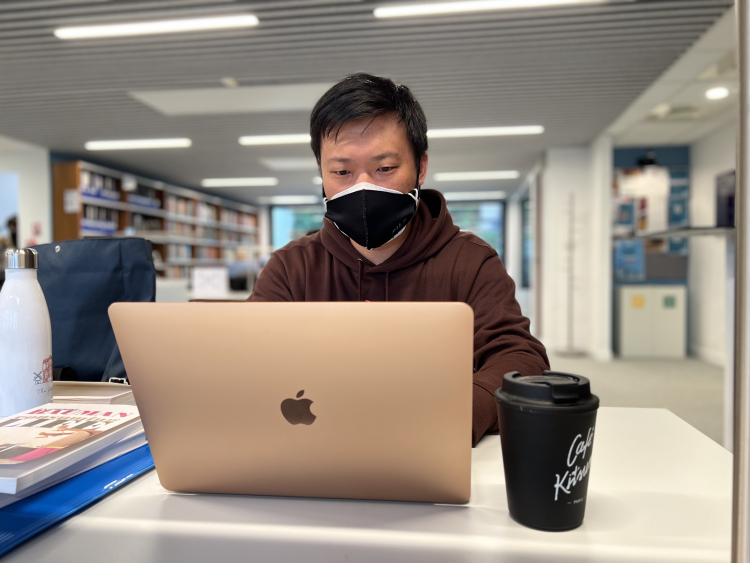Virtual Learning's Persistence Frustrates AUP Students

In Spring 2022 some students at AUP were surprised to find that courses they initially thought would be instructed in person were instead online.
Two years after the first COVID-19 case was detected in France, a year and a half since AUP had brought students back to campus, and a year since students first began receiving vaccination, some students have yet again found themselves sitting in their dorm rooms and apartments staring at their professors and classmates through a screen. Students believe that these virtual classes rob them of fruitful classroom discussions with their peers and normal social interactions in the hallways before and after class.
Photo credit: Daniel LucasStudents are frustrated not just with the continuation of online learning, but with the manner in which they were made aware that their classes would be taught virtually. One AUP student, who wished to remain anonymous, said that both of the courses she had enrolled herself in, which will be taught virtually this semester, were not listed in the course catalog as such. Syllabi contained no mention of online instruction and classroom space had even been assigned for the courses.
Yet, she believes that there never had been any intention on the part of the professor or the University to teach these courses in person. Her professor, who currently teaches four courses virtually at AUP, suffers from a medical condition that puts them at a heightened risk of serious infection were they to contract COVID-19.
According to AUP's Provost William Fisher, "In very exceptional cases, professors could be permitted to teach remotely if two conditions are met." These two conditions, he said, were firstly that the occupational physician "determines that there are justifiable reasons for which they should not teach on site for the whole semester," and secondly, "that the nature of their courses enables these courses to be taught effectively remotely."
Fisher also said that professors are allowed to teach remote courses temporarily with specific conditions and with permission. One such reason, he cited, would be a positive COVID test.
Students in virtual classes are sympathetic to their professors’ concerns and may have some of their own, but find it difficult to balance those feelings with the disappointment of online learning; studies have shown that online instruction leads to a lack of motivation for learning, a lesser understanding of course material, and lower levels of communication between students and instructors.
The University does not currently have plans to require professors currently approved for remote teaching to return to in-person instruction in the future.
Photo credit: Unsplash/Chris MontgomeryStudents are also disappointed that similar opportunities to opt for virtual learning themselves were not offered to them and frustrated with the confusing policies that the administration had laid out regarding the utilization of virtual learning technology in the classrooms.
AUP set Jan. 31 as the date by which all students were required to have arrived in Paris and provided extensions only in exceptional cases to students who had contracted COVID-19 and thus could not travel. An active COVID-19 case was the only acceptable reason that a student could not be present in Paris beyond the 31st. Students feel that their concerns over the ongoing pandemic and what it might mean given their personal underlying conditions were not considered by the administration when crafting this policy for on-site learning.
“It seems that they put money and the opportunity to say that they had returned to in-person learning first, and the concerns of their students second," said Rebecca Dubin, a Junior Art History student at AUP. Dubin pointed out that she and her classmates could not understand why the administration directed professors to only allow students to attend class virtually via Teams if they had a COVID-19 case and not other illnesses or obligations that would keep them from in-person attendance.
“I just get the impression that they care more about the people who are paid to be here than those who pay to be here," said Dubin. "They want to maximize their profit and public perception, but don’t seem all that concerned if the education falls behind because of it.”









